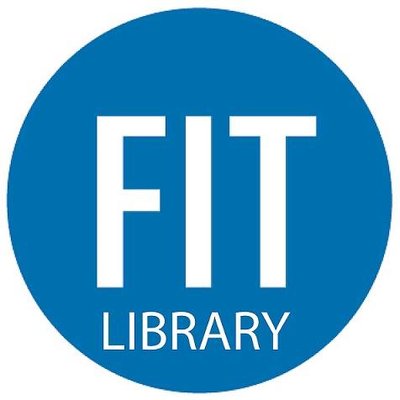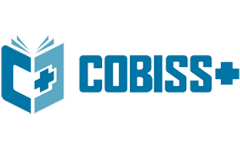Development of a Multicultural Based Education Model in Social Studies Learning in the 21st Century in Indonesia
DOI:
https://doi.org/10.61841/nn46tp20Keywords:
Multicultural Education, Social Studies Learning, 21st CenturyAbstract
The objectives of this study are: 1) increasing the ability of junior high school teachers to plan, implement, and evaluate multicultural-based social studies learning, 2) the development of multicultural-based education models in social studies learning and 3) implementing multicultural-based education models in social studies learning. The approach of this research is Research and Development (R&D) consists of three stages of research. The first stage is the preliminary stage. The second stage of the development stage is to develop a multicultural-based education model in social studies learning. The third stage, the stage of implementing multicultural-based education models in social studies learning. The research subjects were teachers, principals, students, school committees, education and culture offices in the South Lampung Regency, who were selected by purposive sampling. Data collection used questionnaires, observations, interviews, and documentation studies, which were supported by notebooks and focus group discussions. Data analysis uses descriptive techniques. The results of the study are as follows: 1) the ability of teachers to understand multiculturalism can increase after there is socialization, 2) multicultural-based learning models are given integrated with Social Science (PKPS) learning with Socially Oriented Program (ScOP) approaches, 3) multicultural-based education models in social studies learning implemented in schools
Downloads
References
[1] Ministry of Education and Culture. (2016). Minister of Education and Culture Regulation number 22 regarding
Basic and Secondary Education Process Standards. Jakarta: Ministry of Education and Culture. Werz, M., &
Conley, L. (2012). Climate change, migration and conflict: addressing complex crisis scenarios in the 21st
century. January. Center for American Progress & Heinrich B? ll Stiftung. http://www. americanprogress. org.
[2] Lestari, G. (2016). Bhinnekha Tunggal Ika: Indonesian Multicultural Treasures in the Middle of SARA Life.
Journal of Pancasila and Citizenship Education, 28 (1).
[3] Ikhsan, M. H., & Giwangsa, S. F (2019). The Importance of Multicultural Education in Indonesia. JOURNAL
OF TEACHING AND LEARNING IN ELEMENTARY EDUCATION (JTLEE), 2(1), 60-63.
[4] Syam, N. (2009). The challenges of Indonesian multiculturalism: From radicalism to nationality. Kanisius.
[5] Faiqoh, N. (2015). Implementation of Multicultural Based Education as an Effort to Strengthen the Value of Honesty, Tolerance, and Peace in Early Childhood in Kiddy Care, Tegal City (Doctoral dissertation, SEMARANG STATE UNIVERSITY).
[6] Permana, N. S. (2018). BUILDING A MULTICULTURAL EDUCATION SYSTEM IN INDONESIA. JPAK:
Journal of Catholic Religious Education, 19 (10), 3-12.
[7] Sleeter, C., & Carmona, J. F. (2017). Un-standardizing curriculum: Multicultural teaching in the standardsbased classroom. Teachers College Press.
[8] Mulford, B. (2008). The leadership challenge: Improving learning in schools.
[9] Ginsburg, A., Cooke, G., Leinwand, S., Noell, J., & Pollock, E. (2005). Reassessing US International
Mathematics Performance: New Findings from the 2003 TIMSS and PISA. American Institutes for Research.
[10] Borgman, C. L., Abelson, H., Dirks, L., Johnson, R., Koedinger, K. R., Linn, M. C., ... & Smith, M. S. (2008).
Fostering learning in the networked world: The cyberlearning opportunity and challenge. A 21st century agenda
for the National Science Foundation.
[11] Au, W. (2011). Teaching under the new Taylorism: High‐stakes testing and the standardization of the 21st
century curriculum. Journal of Curriculum Studies, 43(1), 25-45.
[12] Chisholm, I. M. (1994). Preparing teachers for multicultural classrooms. The Journal of Educational Issues of
Language Minority Students, 14(11), 43-68.
[13] Muliadi, E. (2011). The Urgency of Multicultural Based Islamic Education Learning in Schools. Journal of
Islamic Education, 1 (1), 55-68.
[14] Mahfud, C., Prasetyawati, N., Wahyuddin, W., Muhibbin, Z., Agustin, D. S. Y., & Sukmawati, H. (2018).
Religious Radicalism, Global Terrorism and Islamic Challenges in Contemporary Indonesia. Journal of Social
Humanities, 11 (1), 8-18.
[15] Suzuki, B. H. (1984). Curriculum transformation for multicultural education. Education and urban society, 16(3),
294-322.
[16] Utley, C. A., Kozleski, E., Smith, A., & Draper, I. L. (2002). Positive behavior support: A proactive strategy for
minimizing behavior problems in urban multicultural youth. Journal of Positive Behavior Interventions, 4(4),
196-207.
[17] Bryan, L. A., & Atwater, M. M. (2002). Teacher beliefs and cultural models: A challenge for science teacher
preparation programs. Science Education, 86(6), 821-839.
[18] Gay, G. (1994). A Synthesis of Scholarship in Multicultural Education. Urban Monograph Series.
[19] Zeichner, K., & Liston, D. (1987). Teaching student teachers to reflect. Harvard educational review, 57(1), 23-
49.
[20] Ohmori, Y., Suzuki, N., Morita, A., Aiba, N., Miyachi, M., Watanabe, S., ... & Kimira, M. (2007). Association
of personality (NEO-Five Factor Inventory) with eating behaviors and physical activity levels in obese subjects
in the Saku Control Obesity Program (SCOP). Anti-Aging Medicine, 4(2), 43-50.
[21] Abebe, W., & Puskur, R. (2011). Beekeeping sub sector challenges and constraints in Atsbi Wemberta District
of eastern zone, Tigray Region, Ethiopia. Journal of Agricultural Extension and Rural Development, 3(1), 8-12.
[22] Kenworthy, L. S. (1981). Quakerism, a study guide on the Religious Society of Friends. Prinit Pr.
[23] Nasional, D. P. (2007). Academic Paper Policy Studies Curriculum Social Studies Subjects (IPS). Jakarta:
Curriculum Research and Development Agency.
[24] Afandi, R. (2013). Integration of environmental education through social studies learning in elementary schools as an alternative to creating green schools. PEDAGOGIA: Journal of Education, 2 (1), 98-108.
[25] Nurdyansyah, N., & Fahyuni, E. F. (2016). Learning Model Innovations in Accordance with the 2013 Curriculum.
[26] Wallace, M. J., & Bau, T. H. (1991). Training foreign language teachers: A reflective approach. Cambridge University Press.
Downloads
Published
Issue
Section
License
Copyright (c) 2020 AUTHOR

This work is licensed under a Creative Commons Attribution 4.0 International License.
You are free to:
- Share — copy and redistribute the material in any medium or format for any purpose, even commercially.
- Adapt — remix, transform, and build upon the material for any purpose, even commercially.
- The licensor cannot revoke these freedoms as long as you follow the license terms.
Under the following terms:
- Attribution — You must give appropriate credit , provide a link to the license, and indicate if changes were made . You may do so in any reasonable manner, but not in any way that suggests the licensor endorses you or your use.
- No additional restrictions — You may not apply legal terms or technological measures that legally restrict others from doing anything the license permits.
Notices:
You do not have to comply with the license for elements of the material in the public domain or where your use is permitted by an applicable exception or limitation .
No warranties are given. The license may not give you all of the permissions necessary for your intended use. For example, other rights such as publicity, privacy, or moral rights may limit how you use the material.
















